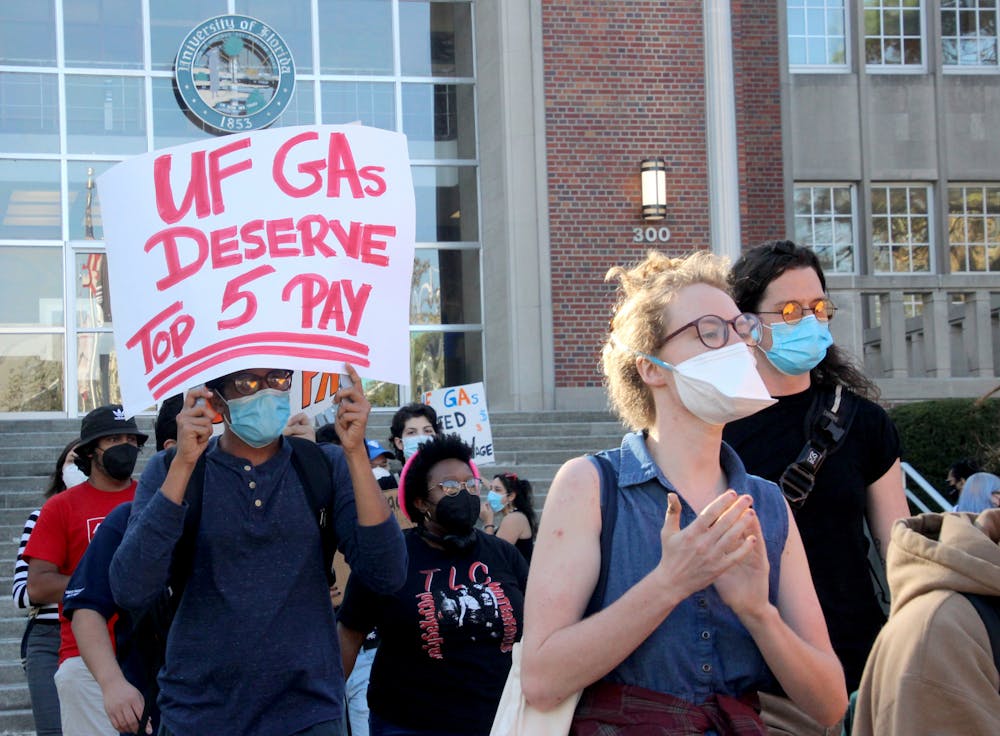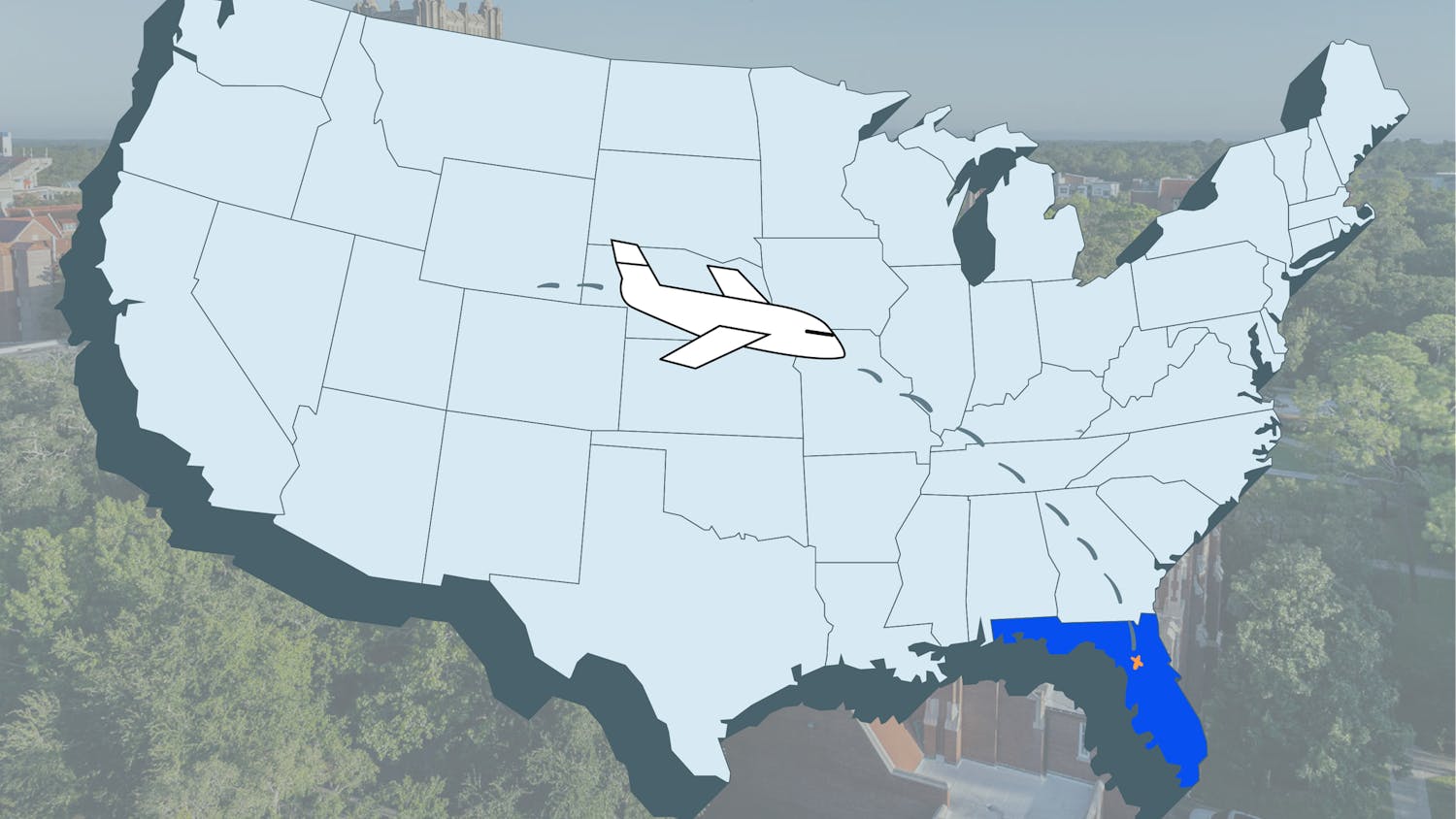UF Graduate Assistants United reopened negotiations with UF Monday morning to bargain for a stipend increase.
In the first meeting of the year, Amanda Markee, GAU’s chief bargainer, said graduate assistants still aren’t covering living expenses comfortably with the current stipend rate.
“One of the key reasons that we're trying to push for this living wage is for the people who are affected by it most,” Markee said.
Prior to August 2021, graduate assistants earned $16,000 for nine-month appointments and $21,333 for 12-month appointments. At the end of negotiations in 2022, GAU and UF agreed on an approximate $1,000 stipend increase for both appointments. Now, nine-month appointments receive $17,000 and 12-month appointments receive $22,753.
Markee cited a poll GAU released August 2021, which received responses from about one-quarter of graduate students. In the survey, 72% of respondents said they couldn’t afford general living conditions.
Eva Garcia-Ferres, a 26-year-old social psychology graduate student, said there’s a lot of anxiety for graduate assistants who are trying to excel academically while also surviving off of a minimum income.
“That does a lot of harm emotionally,” Garcia-Ferres said. “In terms of work, there's nothing else I can do. I’m an international student, so I cannot work outside of UF or take on any more jobs than specified in my contract.”
When she decided to move from Spain to earn her Ph.D. at UF, Garcia-Ferres said she knew there would be challenges.
“We were even told by my [principal investigator] during the interviews that stipends are low, but people make ends meet,” Garcia-Ferres said. “So far I have survived.”
Antonios Kyriazis, a 24-year-old graduate student studying physics, said being an international student poses extra challenges. He came to UF from Greece and said traveling expenses, visa applications and paying to relocate to a new country are among the expenses international graduate students must face on their own.
UF doesn’t allocate enough resources to help international students acclimate financially, Kyriazis said.
“That I did not anticipate beforehand,” Kyriazis said. “That it was going to be so expensive to come here and there was virtually no support.”
During her presentation, Markee quoted UF’s previous reason for not increasing graduate assistant stipends to the requested amount: “UF does not have the money to support your proposal. They have to “keep the lights on.”
Since October 2021, GAU has sought to raise the minimum wage for all graduate assistants to $38,500. This falls in between the minimum wage of a Gainesville resident, Markee said, which is about $31,000 to $34,000.
There are about 4,400 graduate assistants at UF. If the minimum stipend increased to $38,500, UF would allocate more than $169 million for graduate assistant salaries.
It’s currently unclear how much of the UF Budget for Graduate Student stipends would need to be used to accommodate GAU’s desired increase.
Abhay Alaukik, a 25-year-old psychology graduate student, said UF needs to take the effects of the pandemic, rising inflation and the current state of the geopolitical environment to support international graduate students.
“Nobody from the university comes and says, ‘Your expenses are bigger than they were when you started your program — here, we are going to increase your income as well,’” Alaukik said. “They are happy with giving you the same amount they were giving you in 2019.”
Alaukik is optimistic, he said, about Patrick Keegan, UF’s new chief bargainer, who began at the position about two months ago.
“But to be honest — looking at the past — everything else comes first for them in their list of priorities,” Alaukik said.
Keegan attended the meeting and said he and his team from UF have plenty to work on.
“You’ve given us a lot to think about,” he told GAU members during the meeting.
Contact Sophia at sbailly@alligator.org. Follow her on Twitter @sophia_bailly.

Sophia is The Alligator's Fall 2025 digital managing editor. She previously served as the enterprise editor and university editor, as well as a beat reporter for three semesters. She has also interned for The Times-Picayune and The News & Observer as a politics reporter. Her non-journalistic passions include long-distance running, reading mystery books and listening to Florence + The Machine.






